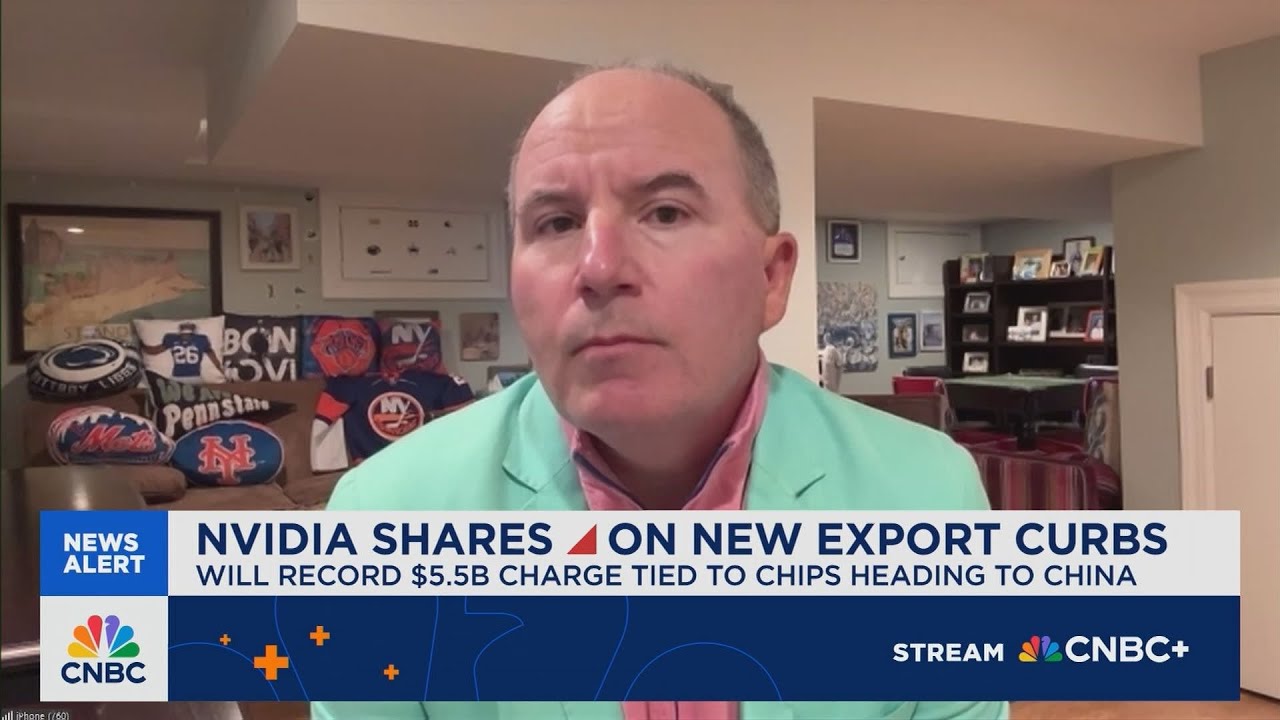Dan Ives from Wedbush Securities discussed the recent decline in Nvidia’s stock, attributing it to a significant reduction in revenue from China, which he views as a blockade impacting the AI chip market. He warned that ongoing U.S.-China trade tensions will create a turbulent environment for tech companies, leading to potential disruptions and volatility in the sector, while still maintaining a positive long-term outlook for Nvidia and the broader tech industry.
In a recent discussion, Dan Ives, the Global Head of Technology Research at Wedbush Securities, addressed the significant decline in Nvidia’s stock, which fell about 5%. The primary reason for this drop is the market’s perception that Nvidia’s revenue from China has been drastically reduced, with estimates suggesting it could be as low as 10%. Ives emphasized that this situation represents a blockade for Nvidia, which is crucial in the AI chip market, and the implications of this blockade are expected to have a substantial ripple effect across the industry.
Ives pointed out that the current geopolitical tensions between the U.S. and China are akin to a trade war, and the restrictions on chip exports are part of a broader strategy. He noted that the market is adjusting its expectations, with analysts likely factoring in a 10% revenue cut across the board for chip companies, including Nvidia and AMD. The situation is particularly dire for AMD, which may experience a more significant impact due to its reliance on the Chinese market.
The conversation also touched on ASML, a leading chip equipment maker, which is facing challenges due to lower-than-expected bookings attributed to tariffs. Ives suggested that the ongoing trade war is a long-term issue that will continue to affect tech companies, making it difficult for them to provide reliable guidance. He described the current environment as a “high-stakes poker” game, where the duration and outcome of negotiations between the U.S. and China remain uncertain.
Ives warned that the tech sector is entering a turbulent period, with potential disruptions lasting three to six months. He advised investors to brace for volatility and to focus less on short-term results, as the situation is likely to remain fluid. The uncertainty surrounding the trade negotiations means that companies may struggle to provide accurate forecasts, leading to a challenging environment for tech stocks.
Despite the immediate challenges, Ives maintained that the long-term outlook for Nvidia and the broader tech sector remains intact. He encouraged investors to look beyond the current turmoil and not to abandon their investment theses. However, he acknowledged that the ongoing chip and tariff wars would create significant obstacles in the near term, requiring a careful and strategic approach from investors navigating this complex landscape.
